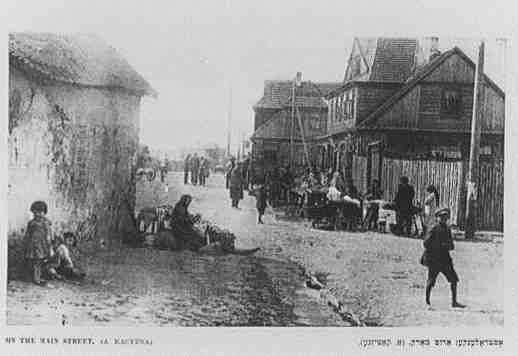

This page was created by David Silverman z"l. It is now available for adoption. If you are willing to adopt this page contact the KehilaLinks project coordinators at: shtetlinks@jewishgen.org
Updated 18 Oct 2017 BAE

Prepared by David Silverman, z"l, Keizer, OR.
My father, Sam SILVERMAN (né CHACEK), often spoke of his Polish hometown, Ostroleka. He also was a member of the Independent Ostrolenker Young Men's Society, which held their regular meetings on Clinton Street, on Manhattan's Lower East Side.
In 1983, fourteen years after my father's passing, my wife and I had the opportunity to visit Poland. Although our itinerary did not include it, we were able to engage a car and driver for a day's excursion to Ostroleka.
That day's trip turned out to be one of our most interesting experiences in Poland.
On the way to Ostroleka, we told the driver that we were interested in visiting the "old" part of town — not telling him that we were Jewish. The ride was extremely interesting in that this was first excursion (we later made others) out of a big city. It gave us the opportunity to see the primitiveness of life that still existed in Poland.
As we approached the town it became obvious that much had to have changed, because we saw a rather largish town with commercial and industrial buildings. We wound through some rather modern streets and entered into the area that the driver considered the old section. We asked him to drop us off and asked that he wait for us at the spot where he dropped us, and we started wandering. Instead of staying in place the driver proceeded to follow us around.
Quite soon an elderly man came out of a home and approached us — we obviously looked like tourists — and since Ostroleka was not a designated tourist town, one would not see tourists there! The man approached us, and in almost perfect English, asked what were we looking for. At that, I decided that we had lucked out in finding someone whom we could easily communicate with, I had better level with him and tell what we were really looking for — the Jewish section of town. As luck would have it, we were in the right place! This gentleman explained his knowledge of English had been gained while he was a POW in Britain during WW II. We asked some questions and he basically told us that there were no Jews in Ostroleka, the Germans had seen to that. The Germans had also burned down the synagogue, he told us. He also advised that there was nothing left of a Jewish cemetery. There were existing homes which were typical of the period when Ostroleka was a shtetl (see c.1920's picture above).
In researching my family I discovered that a cousin (Marvin Chasek) had a copy of the Ostroleka Yizkor Book, which he graciously lent me. I then set about translating portions of that book. Click below to read the translations:
| JewishGen Family Finder | ||||
JewishGen Poland Database (for YourTown)Click the button to show all entries for YourTown in the JewishGen Poland Database. U.S. Holocaust MuseumThe Washington, D.C. museum has a database of documents you can search for references to Ostroleka. Click here to learn about the museum and its archives.
| ||||